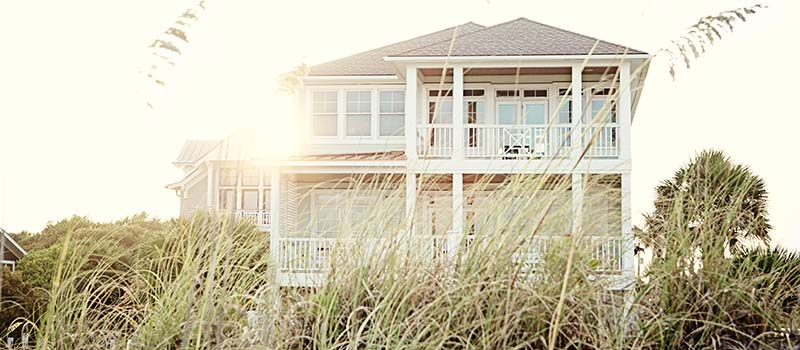Insuring Your Vacation Home
Insuring Your Vacation Home

Insuring Your Vacation Home
Why is it important to insure my vacation home?
If you own a vacation home that remains vacant for extended periods of time, chances are that you may not be aware of issues in the home at all times. Even if you have a regular caretaker who checks in on the property, something as simple as a leaky pipe can often lead to significant damage in a short time. And if your vacation home is vacant, it can also become an easy target for criminals. A vacant home is more likely to fall prey to theft or vandalism, even if it’s located in a safe area.
Environmental factors can also pose a threat to your home. If you own a beach house retreat on the coast, it’s more likely that your home could be impacted by hurricanes or other strong storms. And if you have a secluded mountain cabin, your vacation home might be more likely to sustain tree-related damage or damage from wildfires. These types of disasters can cause thousands of dollars in damage – and it might take you days or weeks to check on the property, which can pose even more of a risk!
What makes my vacation home insurance more expensive?
Many of the factors that determine the cost of your insurance on your primary residence still apply to a vacation home. If your vacation home is located in a place where natural disasters occur frequently, this increases the risk of damage to the property (and the cost to protect it).
Generally speaking, the longer that your vacation home is vacant during the year, the more expensive it is to insure it. If you only stay in your vacation for one season a month, your insurance will usually cost more than if you live at the house for half of the year. If you have a full-time housekeeper or groundskeeper who stays on the property in the off-season, a discount may be available, but you should check with your local agent to see if this type of discount will apply.
If you take additional steps to mitigate potential risks, other discounts could potentially apply. For example, installing an alarm or security system reduces the risk of theft or vandalism, and replacing an old roof decreases the likelihood that your home will sustain damage from rain events. As is the case with your primary residence, taking extra steps to keep your home safe can have significant discount-related benefits.
If your vacation home requires additional coverage because of its location, this can also increase the cost of your insurance premium. For example, if your vacation home is located in an area where flood insurance or earthquake coverage is needed, this can significantly increase the cost to protect your home. These are important factors to consider, especially if you’re in the market to purchase a vacation home.
Get the coverage you need
Every home is unique, including a vacation home, so you’ll want to make sure you have the coverage to fit your particular situation. To make sure you’re getting the right coverage at the best price, reach out to your local agent. They will work with you to make sure you have what you need to protect your home (or homes).
